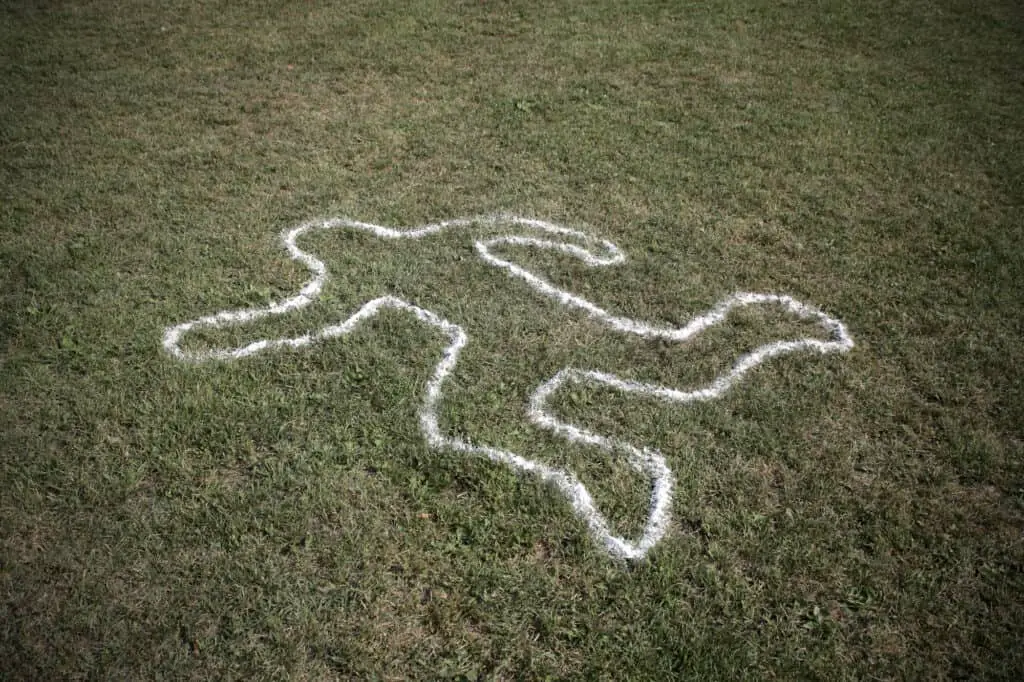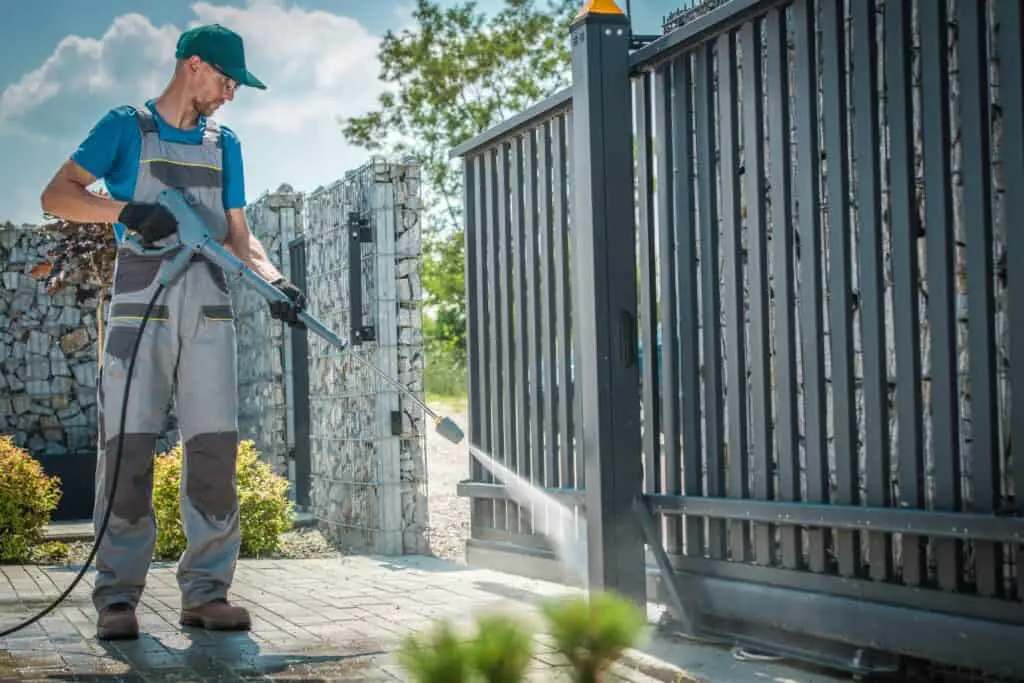Will pressure washing with bleach harm your grass? You can safely pressure wash without worrying about grass and plants with the proper bleach-to-water ratio.
We offer the best methods of using bleach and other cleaning chemicals without damaging your grass and plants.
When you decide to pressure wash your house, it is wise to know the proper precautions to reduce the chance of “bleach harm your grass” effects.
Bleach is a great way to get things clean, killing mold and mildew, but it may also harm grass and plants.
When it comes to the outside of your home, it is completely understandable for you to want to make sure it looks as nice as possible.
The way a home looks can be seen as a reflection of yourself.
When you go to pressure wash your house, there is bound to be some kind of runoff that will get on your yard, plants, and other valuable items you may have lying around.
Read further on the best ways to safely wash pressure washing with bleach.
Related Reading: How Often Should You Pressure Wash Your House?

Related Reading: Will Bleach Kill Tree Roots in a Sewer Line? (Pros & Cons)
Table of Contents
Will Chemicals Like Bleach Harm Your Grass and Other Plants?
The primary purpose of pressure washing your home is to eliminate dirt and mold that accumulate on its walls, resulting in a renewed appearance.
The chemicals used in pressure washing are specially formulated to avoid harming animals or plants.
There is still a chance that any of the other chemicals present or bleach will harm your grass or other plants around your house.
Related Articles:
- Refresh the Outdoors: Diluted Bleach for Plants
- How Much Water to Power Wash a House? Optimizing Efficiency
- 11 Crucial Pressure Washer Safety Tips You Must Follow: Blast with Care
What Impacts Grass from Pressure Washing with Bleach?
When you decide to pressure wash with bleach, you are mainly aiming to kill small organisms like mold and mildew.
Usually, what you use will be diluted to a 3:1 water-to-bleach ratio.
While you are pressure washing with bleach, the runoff into your yard and garden will turn into salts as the bleach starts to break down.
Will pressure washing with bleach harm your grass?
High salinity in your garden and yard can lead to plant death.
High salinity will make it harder for the plant to retain water, causing bleach to harm your grass.
A vital step to reduce the “bleach harms your grass” effect while pressure washing is to ensure your grass and plantings are correctly hydrated and fed beforehand.
If you do this, when the bleach runoff seeps into your yard and garden, it will be more diluted.
This will have less of an impact on the grass and plants that it will touch. This will effectively reduce having bleach harm your grass and plants.
Once your pressure washing with bleach is completed, it is vital to do another thorough cleaning.
It’s essential to wash out all the remaining leftover residue in your yard or garden.
What Kind of Bleach Should You Use?
If pressure washing with bleach is the main chemical you will use on your house, you should probably opt for oxygen bleach over chlorine bleach.
Oxygen bleach is gentile on foliage.
While it may be easier on the foliage, you should still protect your plants as much as possible.
Experts suggest going outside and covering the parts of your yard or plants you want to keep protected while pressure washing with bleach.
If you are unable to cover or move any of the plants, you will want to give them a thorough wetting.
This should be done before and after pressure washing to reduce bleach harm to your grass and plants.
When you pressure wash your house, it is vital that you use the right bleach so your grass and plants have the best chance to thrive.

Other Remedies For Pressure Washing with Bleach
After reading the above information, you may now be a bit hesitant to use bleach when you go to pressure wash your house.
You may want to know what other options you have to decide to clean your house and have it looking as good as new.
You should be able to weigh the pros and cons and make the best decision about an alternative.
Alternative methods of cleaning your house would not have bleach harm your grass and plants, but still be careful when choosing.
Can You Use Detergents?
The short answer to this question is yes, you can pressure wash using detergents.
If your home is going to be washed with simple detergents, these biodegradable ingredients are usually diluted to a 10:1 water-to-detergent ratio.
Despite the fact that it is significantly diluted, be careful if you let the runoff remain on foliage.
You will notice your grass or any other plants touched by the chemical, and you will start to develop some brown spots on them.
As discussed, you should take the necessary precautions by watering before and after pressure washing.
This will offer the best chances to keep your grass and plants as healthy as possible.
But remember to be as thorough as you can be because even with the tiniest bit of detergent left on your plants, they will possibly die.
Watch Out for Salient
If your house has natural wooden siding, you must usually use salient post-pressure washing.
This method is to preserve the natural grain and makeup of the wood.
If this is something you have to use, be very careful.
The salient will harm your grass or plants more than either detergents or bleach.
Before you use the salient, make sure you cover and secure all nearby plants or grass.
You more likely will not be able to wash off the foliage.
Unfortunately, this will harm your grass and plants, causing their eventual demise.
It is essential to make sure your house looks as clean as possible.
However, we should not overlook the possibility that plants and grass will turn brown or die during the cleaning process.
You need to know when to take the necessary steps and precautions when pressure washing with bleach, detergent, or salt.
Covering grass or plants may take more time, but it is worth it to protect them from potential runoff.
You do not want to have your grass or plants covered for too long since that can harm them as well.
Only cover the parts you are currently working on to clean sectioning off as you go, especially if the house you are cleaning is quite large.
Related Reading: Use Bleach to Kill Bushes? Exploring the Effects and 5 Safety Tips
Final Thoughts
Take your time, clean your house, and keep the grass and plants that help make your home a home, alive and flourishing as long as they should.
Although you may wonder if bleach harms your grass, it is actually the safest cleaning product.
Can bleach harm your grass? Without proper precautions, yes.
The main factor that will harm your grass is you.
If you follow the steps outlined in this article, your lawn and plants will thrive.
Enjoy living the outdoor life!
